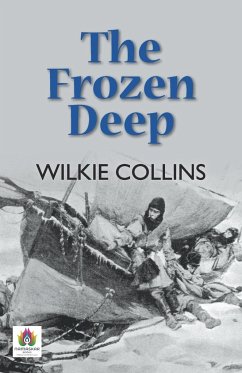The play's genesis lay in the conflict between Dickens and John Rae's report on the fate of the Franklin expedition. In May 1845, the "Franklin expedition" left England in search of the Northwest Passage. It was last seen in July 1845, after which the members of the expedition were lost without trace. In October 1854, John Rae (using reports from "Eskimo" (Inuit) eyewitnesses, who informed that they had seen 40 "white men" and later 35 corpses) described the fate of the Franklin expedition in a confidential report to the Admiralty: "From the mutilated state of many of the corpses and the contents of the kettles it is evident that our wretched countrymen had been driven to the last resource-cannibalism-as a means of prolonging survival."
Hinweis: Dieser Artikel kann nur an eine deutsche Lieferadresse ausgeliefert werden.
Hinweis: Dieser Artikel kann nur an eine deutsche Lieferadresse ausgeliefert werden.








